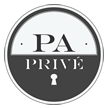Concerned about getting back in the workforce after a gap in your employment? Returning to work following an absence can often be the most critical component of your recovery. If you’ve not been in work for a while, it’s natural to feel apprehensive about going back. But I have good news for you! there are steps you can take to make it easier.
Click here if you need some Personal Assistant CV/PA CV advice.
These tips outlines steps you may take to help make your return to work smooth and successful. It provides information on actions you may want to consider before returning to work.
Return to Work Strategies.
Lacking confidence? You may feel that your confidence has slipped away, be worried that your skills might be out of date, or that things have changed in the workplace. A great start is to think about the skills you’ve developed at home – such as managing a budget, teaching your kids, counselling, negotiating, problem-solving and time management. And don’t undervalue your personal qualities.
Start Connecting.
Build and Keep Your Network Before You Need It. You may not realize the huge impact social media has made during recent years. If you’re not online, start creating a profile and connect to companies and forums in your field. You can even start a blog related to the field to connect to others.
Stay Active in Professional Associations.
Most career fields have professional associations that sponsor meetings, conferences, committees, training sessions and more for members. Stay active in your local association by attending meetings, writing for the newsletter, acting as a good will ambassador and attending national conferences. Volunteer for the activities that most closely match your career field and interests. Choose activities in which you’ll interact with many members to expand your network at the same time.
Research.
Using the internet to discover what is required in the type of position you are seeking. Job postings are “wish lists” that employers put together in hopes of finding the perfect candidate. Use these postings to see what employers are seeking and make sure that your resume and your interview answers address the employer’s “wishes”.
Plan.
This is something that most people overlook. Set an Action Plan think about the things that concern you, add your short and long term goals. With a plan in place it will ease the transition.
Get Advice.
If you’ve been out of the working world for a while it’s important to get advice from friends and family about current trends in finding and applying for jobs as well as types of interviews. Talk to someone if you are having some worries. Talk to your key support people, e.g. family, friends, doctor, supervisor, manager, etc. If you can try one on one counseling sessions, can be very helpful during your transition period. A Life Coach or other therapist or specialist can really help you to put together your plan of action and talk through your fears and concerns. For some people it is an extremely daunting thing to find the confidence to return to work after an absence. Understand that you are not alone in this experience and that there are ways for you to succeed on your own, or with help of a professional.
Use your cover letter to your advantage.
In addition to showcasing your experience and skills, your cover letter can answer any questions about an employment gap that a hiring manager might have.
Refresh your resume.
Keep track of new skills and activities you have developed and experienced during your time away from the workforce.
If you’ve been out of work for some time, you could opt to structure your resume as a functional resume. With a functional resume you would name all of your skills at the top of the resume and then list your work experience below, but not in a reversed chronological order.
Fill in the Gaps.
There was a time when gaps in employment were an immediate red flag to signal that someone had issues or was a less than desirable hire. However, with the current economy, more employers understand that there may be times when even the best job candidates have been without work.
Refresh your Skills.
Show that you’ve kept your skills refreshed through courses, online learning and/or independent study. Some employment agencies offer free training, also you can try Adult education colleges, run day and evening classes in a variety of subjects. Return to Work courses usually includes computer skills, job hunting skills, confidence building, and advice and guidance on your options. Some are specially aimed at women who are returning to work after a long period of time.
Work is a key part of your recovery.
Gradually incorporating work demands into your recovery may help to improve your chances of staying healthy. Work may benefit your overall health by providing structure and routine, social interaction, physical and mental stimulation and a sense of accomplishment.
Create a Small Business.
Work even a few hours a week, even if you worked part-time for yourself or your partner.
Volunteer in Community, School and Civic Organizations.
Challenging volunteer work can help to fill the gaps in your resume whether you return to your original career or create a career change in the future.You will find this experience not only challenging, but also rewarding.
Consider Job-sharing.
This is when two people share the tasks of one job. When it works well it is a brilliant arrangement and often allows women to go into areas of work that aren’t available to them on a part-time basis. However, before deciding you need to think about whether you could manage on half a wage and whether your type of work is suitable for job-sharing.
Consider temporary/Freelance work.
Firms may be more willing to take a punt on you if it’s on a short-term contract, and many contracts end up going permanent anyway, so it could be your foot in the door.
Freelance Projects.
If you’ve done consulting/freelance work that’s related to your job target, include project highlights in your Work Experience section.
Professional Development.
Demonstrate your commitment to the field by including membership in professional organizations and participation in conferences.
For the Interview
Prepare.
If you haven’t interviewed in a while it’s important to practice before you give it a go. Remember that it’s helpful during an interview to account for where you were during a long absence but you don’t need to apologize to employers for taking a break or explain your actions. Have confidence in your abilities and decisions and stay positive.
Send a follow up letter (or email)
After the interview to remind the interviewer what you would bring to the position and to address any concerns that you may have picked up on during the interview.
Persevere.
Job searching isn’t easy for anyone these days, especially if your work experience isn’t current. Be patient with the process and keep talking to different people and applying where you can.
Go in confidently and let potential employers know why you have what it takes to do the job.
Stay positive.
During an interview, emphasize the experience, accomplishments and enthusiasm you can bring to the position. Don’t focus on the gap in employment.
Have you had an extended absence from work… we’d love to hear your journey back into the work force? Please comment below!






